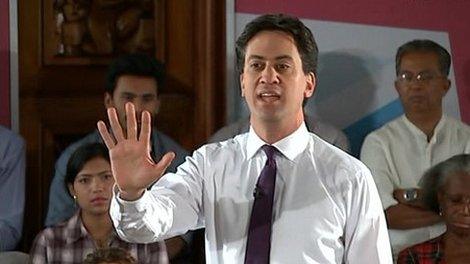Where does Labour stand at the end of 2014?
- Published
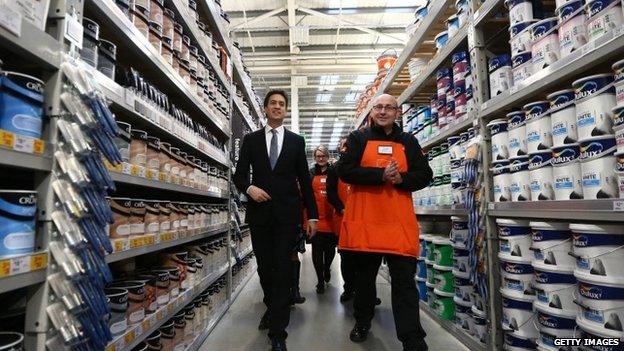
Election results since 2010 have demonstrated the limits of Labour's appeal
Labour won two by-elections in 2014 and performed respectably in council elections but question marks still remain about their leader and strategy in the run-up to May's general election.
What images have lodged in your mind from Ed Miliband's year?
Eating a bacon sandwich? Posing with the front page of The Sun, before having to apologise to the people of Liverpool for posing with the front page of The Sun? Delivering his conference speech, minus the bits he forgot such as the deficit?
What you may have forgotten is that the Labour leader also celebrated two by-election victories.
The party comfortably held on to Wythenshawe at the start of the year but October's win in Heywood and Middleton - also in Greater Manchester - had UKIP breathing down Labour's neck.
The vote share for Nigel Farage's party went up by 36% on the general election. It was 617 votes short of victory.
Colin Lambert, a Labour councillor for West Heywood and a former leader of the local council, says the threat has not gone away.
"Some of us who know the area were quite surprised that we actually held on to the seat," he says. "We were not surprised by the closeness of the result."
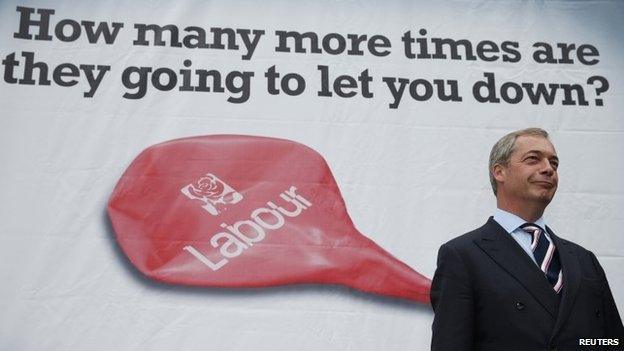
Activists are warning Labour that UKIP poses a threat in some of their heartlands
He thinks there is a disconnection between the party's message from Westminster and what activists hear locally on the doorsteps.
"The campaign was very weak to start with," he believes. "It went on one issue - an important issue - the NHS - but they have to accept that immigration is an issue on the doorstep and the public will tell you that they voted with several thoughts in mind.
"One was immigration, another was poverty levels and the fact they (the public) felt the national party had ignored local views.
"Talking to Labour colleagues around the country it would seem Heywood and Middleton is fairly typical. In which case I'm beginning to be more and more pessimistic."
Heywood has always been a Labour seat and its supporters will hope that many former Labour voters who deserted the party in October return to the fold in May. Even so, enthusiasm for the party is muted.
"Poorly" was how one lady responded on Heywood's high street when we asked how Labour was doing. On whether Labour could win the next election she replied: "No - not unless they change radically."
Another voter told us he had "no confidence in them - or confidence in anyone".
Personal ratings
In the summer, the Labour leader confronted his perceived image problems as he sought to cast himself as a politician with substance over style. If you want the politician from central casting, he said, vote for David Cameron.
Yet he still has to persuade voters to see him as a potential prime minister.
The party's showing in the council elections was respectable - it gained nearly 400 seats - but still demonstrated the limits of its appeal - it was not the sort of performance that suggested victory in the general election was guaranteed.
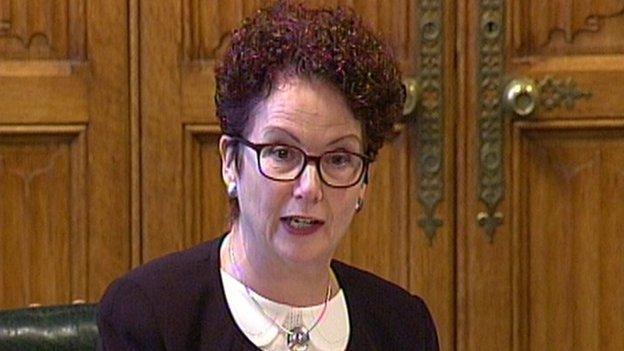
Hazel Blears says Labour needs to simplify and hone its message
"Ed Miliband has had pretty poor ratings throughout his leadership and in recent weeks they have been worse than they were and he didn't get a boost after the conference which he did receive last year and the year before, so he will be clearly disappointed by that," says Peter Kellner from pollsters YouGov.
"I fear now it's going to be very hard for him to change that."
Labour has two major challenges to address between now and the election, Peter Kellner believes.
"There's never been a case when a party has won an election when it's been behind on both leadership and the economy - and that's where Labour is now. So Labour has go to neutralise at least one of those two factors if it's to have a real chance of winning next May."
Local links
Former cabinet minister Hazel Blears says who stands for Labour at the election will be critical to its chances of success.
"If you have local candidates, I think that does make a difference because people relate much more easily to people they see on a Saturday morning down the market doing their shopping," she says.
"I do think that is something, perhaps in recent years, that has become a bit more tenuous and we've lost some of those links. We absolutely need to re-establish them."
Time, though is short, and she urges leadership to use it wisely.
"I think over the next few months we've got to hone it down to four or five absolutely key pledges here and make sure they are costed, practical - we can implement them - and we can get on with it. I think we have absolutely got to bang that message again and again."
'Taking notice'
So is Labour there yet?
"I don't think so," she replies. "But I think the next few months will give us the opportunity. People will start to take more notice as the general election approaches."
Back in Heywood, Colin Lambert - who used to be on the local council for Labour - says that even after holding on in the by-election, Labour remains vulnerable in what was once a party stronghold.
"They need to wake up. UKIP are still here in the town, they're still operating, they're still out on the estates and they're in the community.
"We should have been doing the same with our new MP. I think if Labour carries on locally as it is then the seat's gone. It will go."
- Published13 November 2014
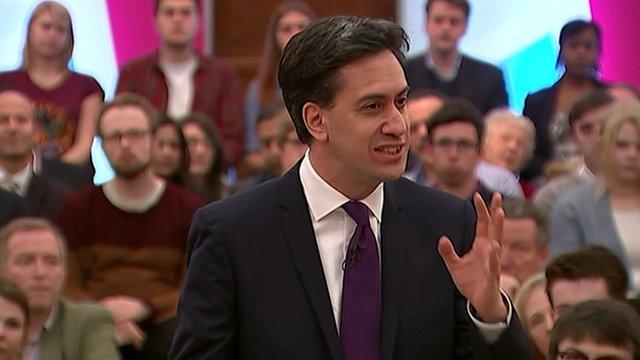
- Published8 October 2014
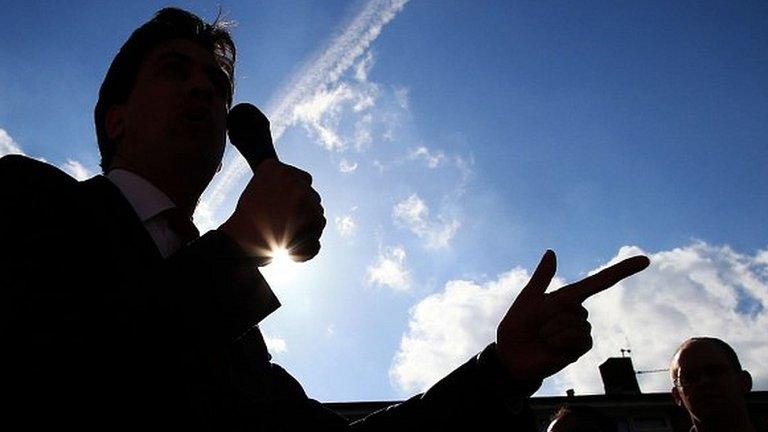
- Published25 July 2014
